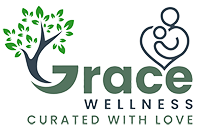Extensive Education and Training:
They have undergone comprehensive education and training in lactation and breastfeeding. This typically includes completing formal education, such as courses or degrees in lactation consulting, and obtaining certifications from recognized organizations.
Certification:
Highly qualified lactation professionals often hold certifications from reputable organizations like the International Board of Lactation Consultant Examiners (IBLCE) or equivalent national boards. These certifications demonstrate their competence and adherence to professional standards.
Clinical Experience:
They have significant hands-on experience working with breastfeeding mothers and infants. This experience allows them to effectively identify and address various breastfeeding challenges and provide personalized support and advice.
Updated Knowledge:
Lactation professionals stay current with the latest research, best practices, and guidelines related to breastfeeding and lactation. They continuously educate themselves on emerging trends and evidence-based approaches to provide the best care for their clients.
Empathy and Compassion:
Highly qualified lactation professionals are compassionate and empathetic in their approach. They understand that each mother and baby’s situation is unique, and they provide emotional support alongside practical assistance.
Problem Solvers:
They are skilled at troubleshooting breastfeeding issues and finding solutions to challenges that may arise during the breastfeeding journey. This includes addressing problems such as latch difficulties, low milk supply, nipple pain, or other concerns that can affect breastfeeding success.
Communication Skills:
Effective communication is crucial for lactation professionals. They can explain complex concepts in simple terms, actively listen to mothers’ concerns, and provide clear instructions for various breastfeeding techniques and practices.
Non-Judgmental Approach:
They maintain a non-judgmental and supportive attitude towards mothers, recognizing that breastfeeding experiences can be different for everyone, and personal circumstances can influence the breastfeeding journey.
Collaboration:
Lactation professionals often work closely with other healthcare providers, such as pediatricians, obstetricians, and nurses, to ensure coordinated care and a multidisciplinary approach to breastfeeding support.
Advocacy:
Highly qualified lactation professionals may also be advocates for breastfeeding at community and policy levels. They promote breastfeeding as the best nutritional choice for infants and advocate for supportive environments for breastfeeding mothers.
Overall, highly qualified lactation professionals play a vital role in helping mothers and babies achieve successful breastfeeding experiences and are essential resources for promoting maternal and infant health.

